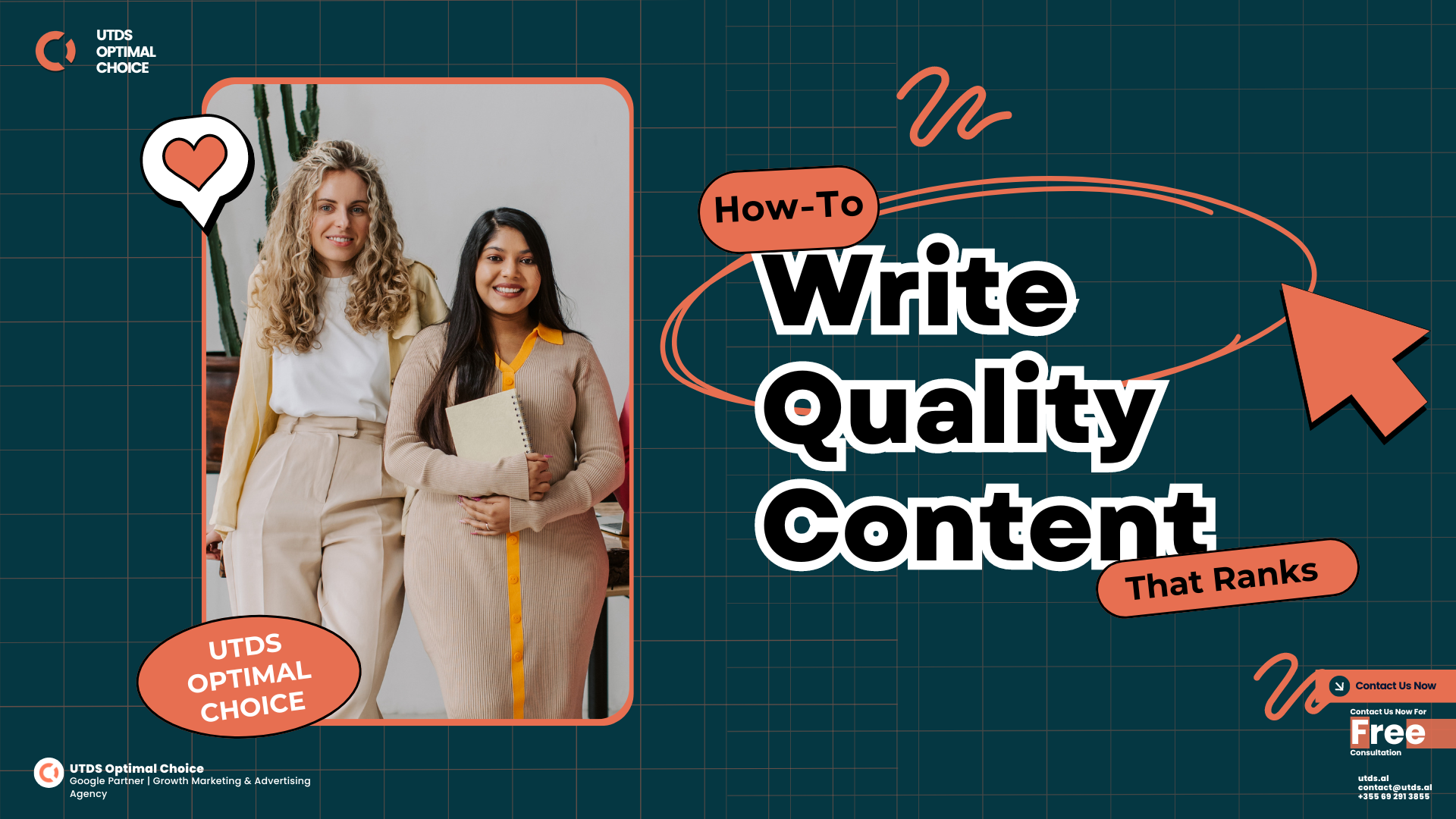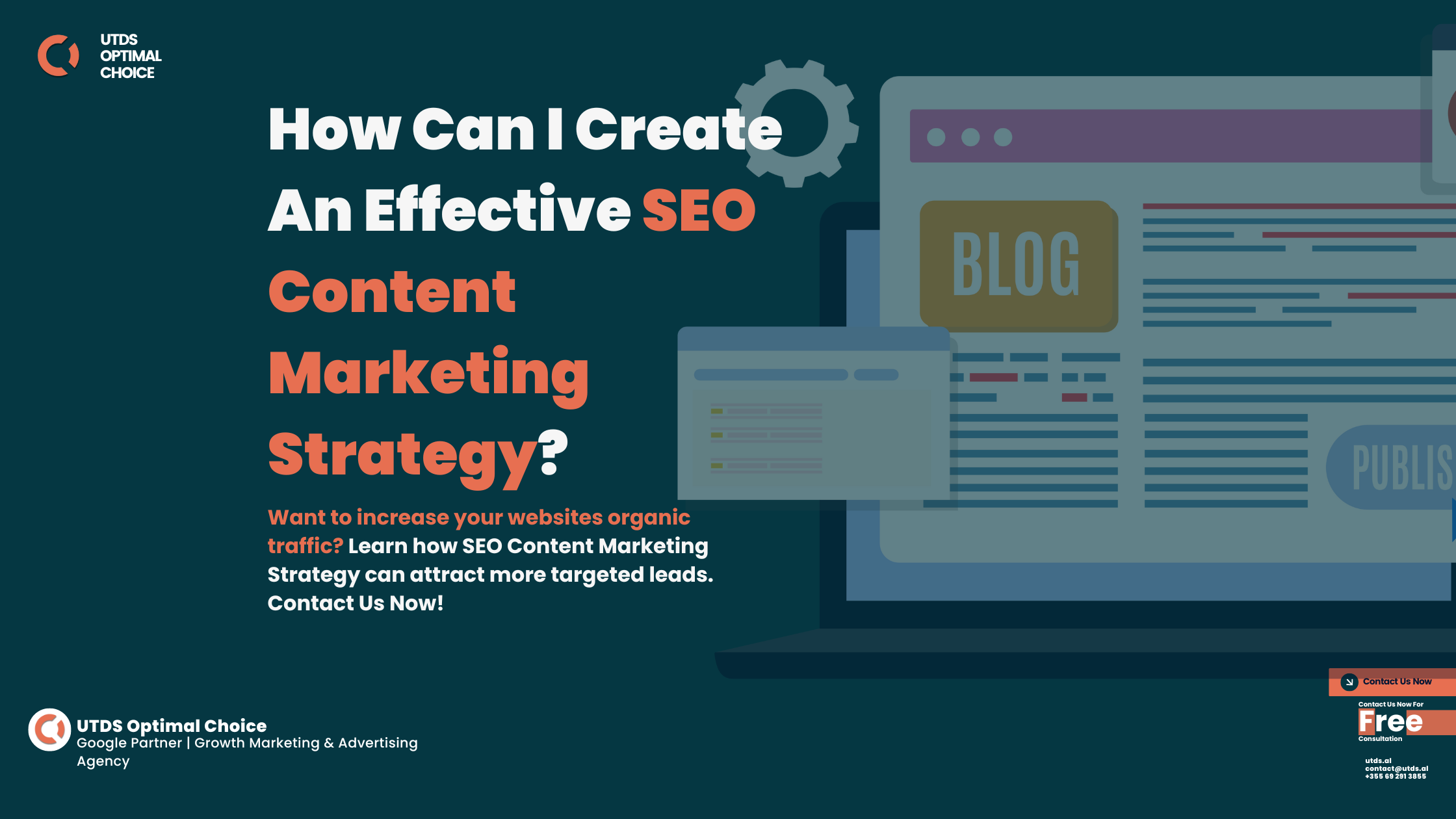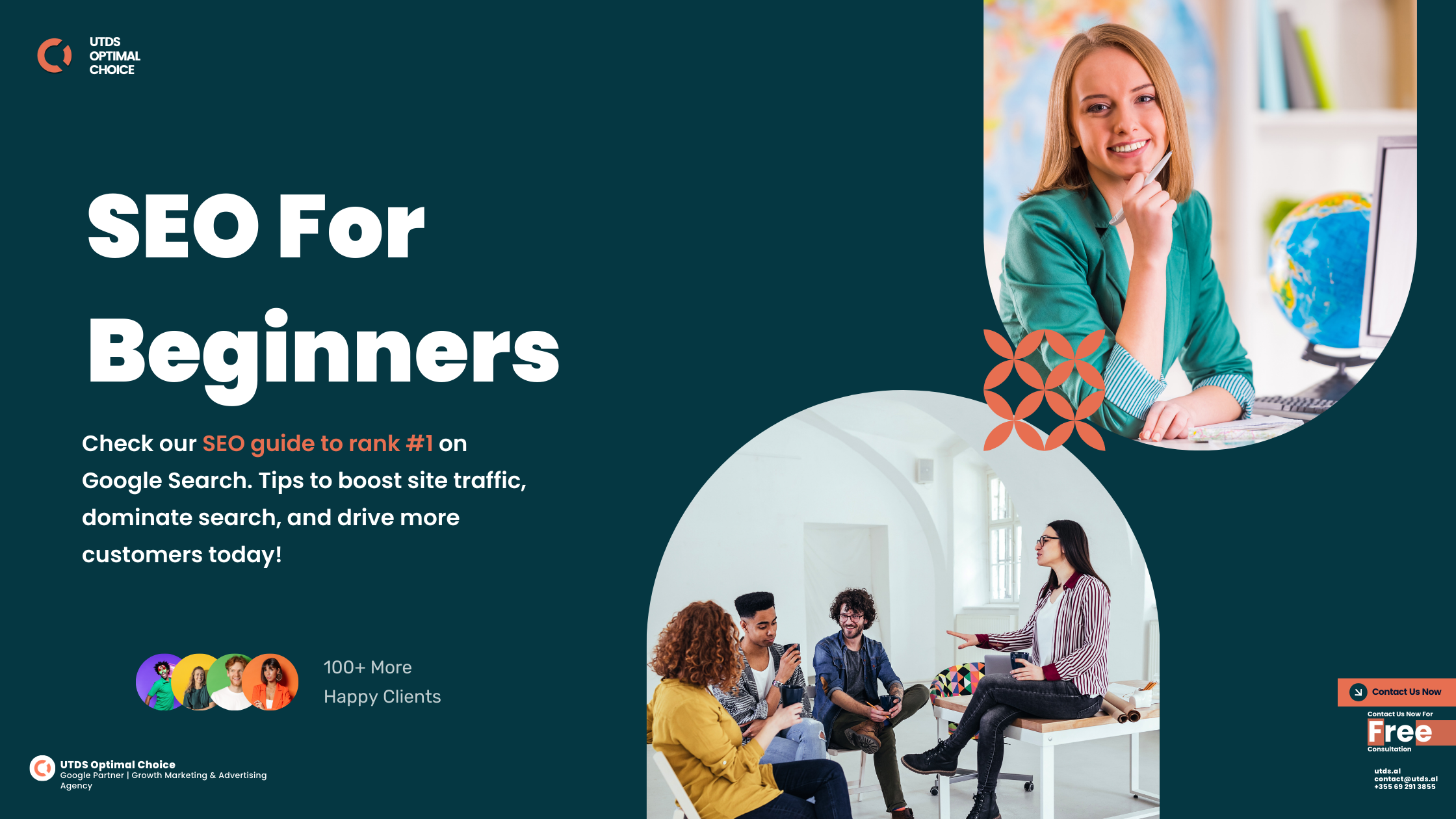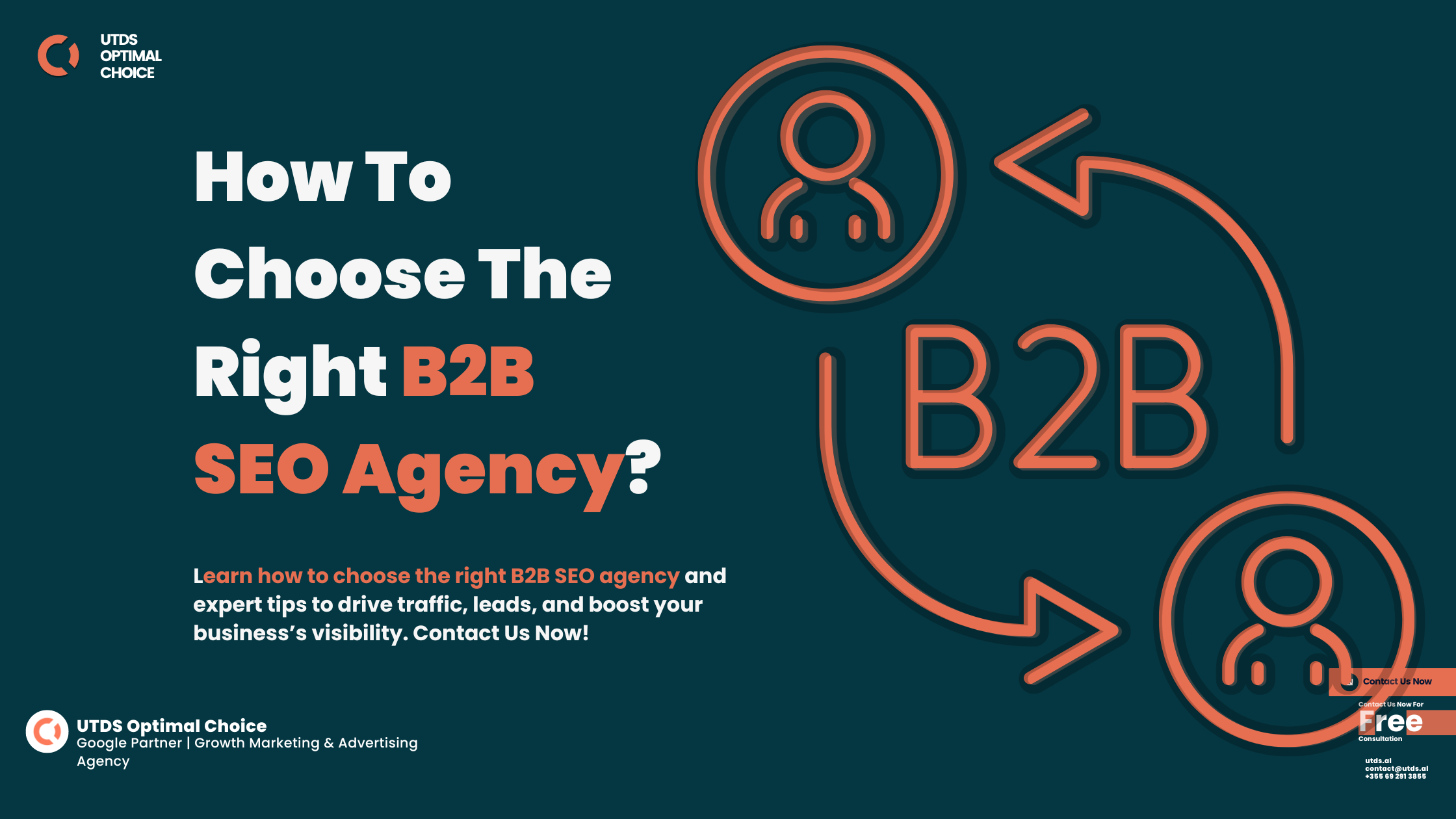“How long should a blog post be?” It’s a common query among UK content creators seeking clarity on website word count, blog post SEO, and how many words are needed per page to rank well in search engines. While there’s no one-size-fits-all answer, understanding the optimal word count can significantly impact your blog’s performance in search engine rankings.
Recent data suggests that the average blog post length is approximately 1,427 words, as reported by Orbit Media . However, it’s essential to note that longer content isn’t always better. Ahrefs research indicates that while there’s a positive correlation between content length and organic traffic up to 2,000 words, this trend reverses beyond that point.
These findings fuel ongoing discussions about optimal word count for web pages and how to rank in Google through content that’s both thorough and concise.
Ready to optimise your content for higher Google rankings? Contact us today to discover how the right content length, tailored for your business, can drive more traffic and conversions. Get your free consultation now!
Renowned SEO expert Ross Tavendale emphasizes the importance of content relevance over sheer length. In his Weekly Wisdom session, he states,
“It’s not about how many words you write, but about how well you address the user’s intent.”
In this article, we’ll look into the ideal word count for web pages, explore strategies for crafting effective SEO blog posts, and provide insights on how to rank in Google by aligning your content with user expectations.
Why Word Count And Web Page Word Count Still Matter for Blog Post SEO
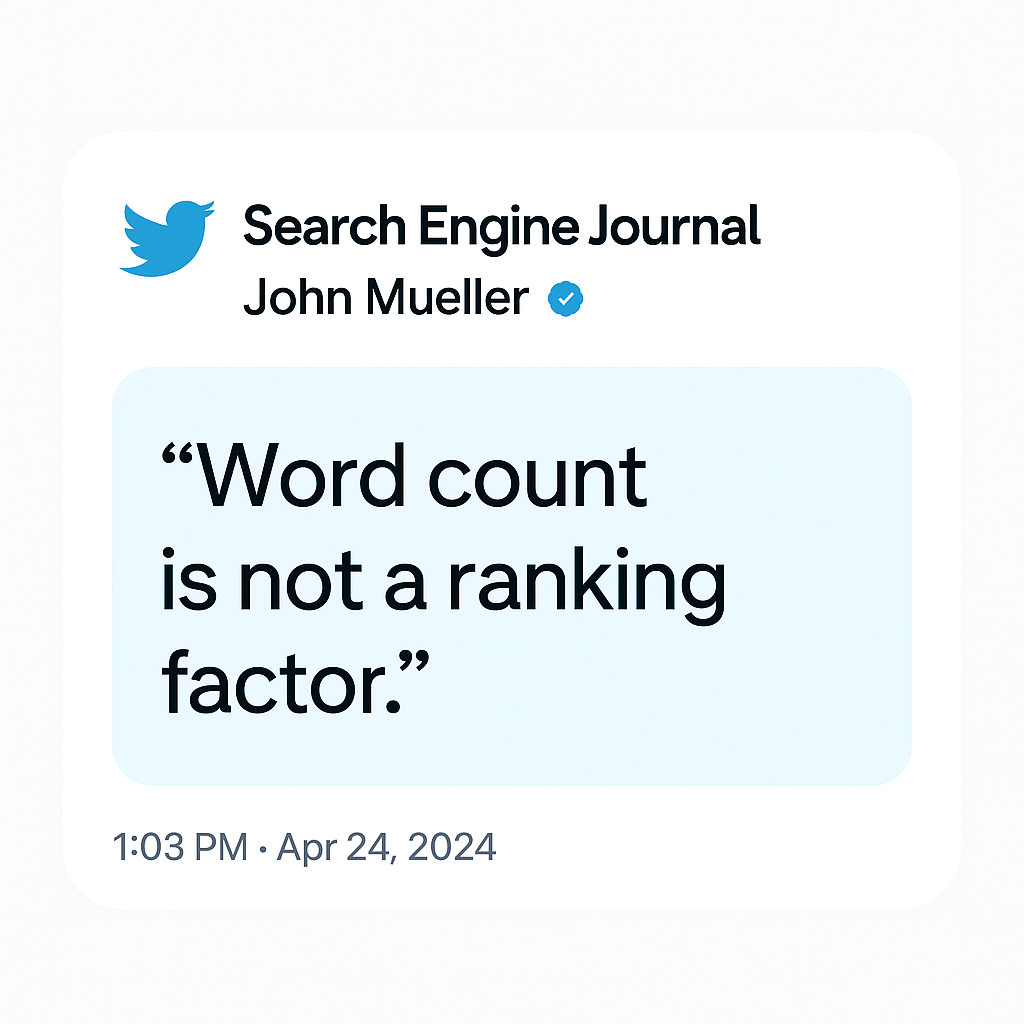
While Google has clarified that word count isn’t a direct ranking factor, the length of your content can influence how well it satisfies user intent, which is crucial for SEO.
In a Search Engine Journal article, Google’s John Mueller stated:
“Word count is not a ranking factor.”
However, he also emphasized the importance of content quality and comprehensiveness.
Data From Top-Ranking UK Blog Posts
According to Orbit Media’s 2024 Blogging Statistics, the average blog post length is approximately 1,400 words. Their research indicates that longer posts tend to yield better results, with bloggers who write 2,000+ words more likely to report “strong results.”
Additionally, a Semrush study found that the average length of top-performing blog posts is around 1,152 words, while low-performing posts average 668 words.
Real UK Example
Consider MoneySavingExpert, a UK-based financial advice website. Their in-depth articles often exceed 2,000 words, providing comprehensive information on topics like “best credit card UK” and “cheap broadband deals.” This thorough approach helps them rank highly in search results and meet user needs effectively.
Their content structure also reflects the best practices of SEO blog posts, with proper web page word count distribution that serves both search engines and readers effectively.
Community Insight
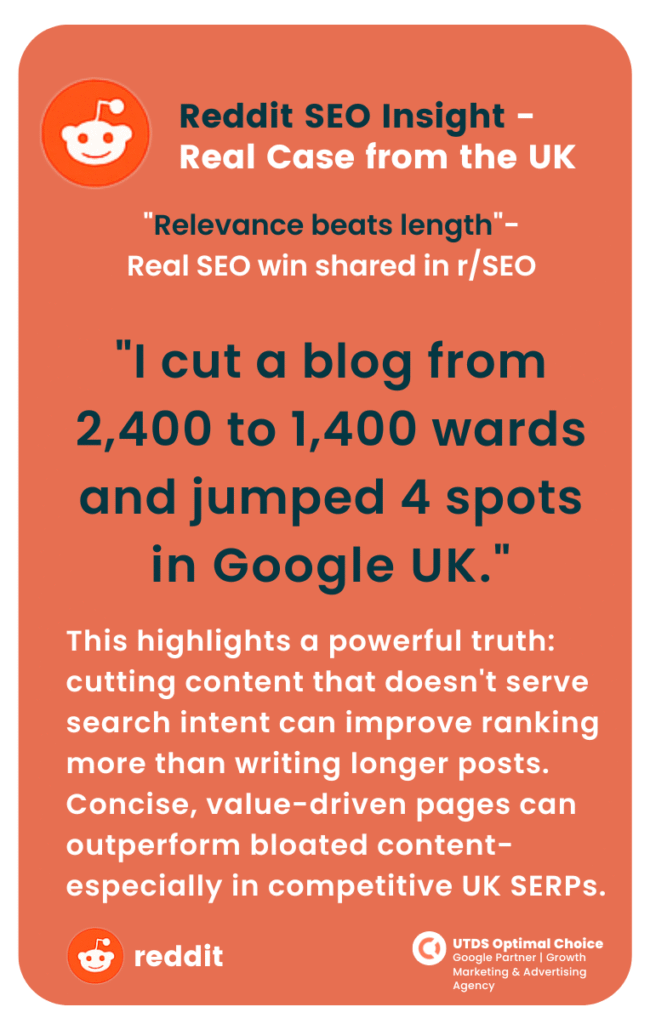
In a Reddit discussion, an SEO professional shared:
“I cut a blog from 2,400 to 1,400 words and jumped 4 spots in Google UK.”
This anecdote highlights that concise, relevant content can outperform longer, less focused articles.
Whether you’re creating a long-form SEO article or a compact update, aligning content length with search intent, drives performance.
So, Does Word Count Matter?
Yes, but context is key. While there’s no strict word count requirement, ensuring your content thoroughly addresses the topic and satisfies user intent is essential. Aim for clarity and depth, tailoring the length to the complexity of the subject matter.
Instead of obsessing over how many words on one page or post, the real metric is whether your content meets expectations and addresses queries thoroughly.
How Long Should A Blog Post Be? What 100+ Top-Ranking Posts Say
How Many Words Do Top-Ranking Blog Posts Have?
Determining the optimal word count for blog posts is crucial for SEO success. While there’s no one-size-fits-all answer, various studies provide insights into effective content lengths.
Insights From Industry Studies
- Ahrefs reports that the average blog post length is 1,427 words, based on a survey of over 1,000 bloggers.
- Wildings Studio suggests that the ideal blog post length for SEO is between 1,000 and 2,500 words, with longer posts often performing better due to increased depth and keyword opportunities.
- Click Intelligence highlights that the average first-page result on Google contains close to 1,500 words, emphasizing the importance of comprehensive content.
Community Insights
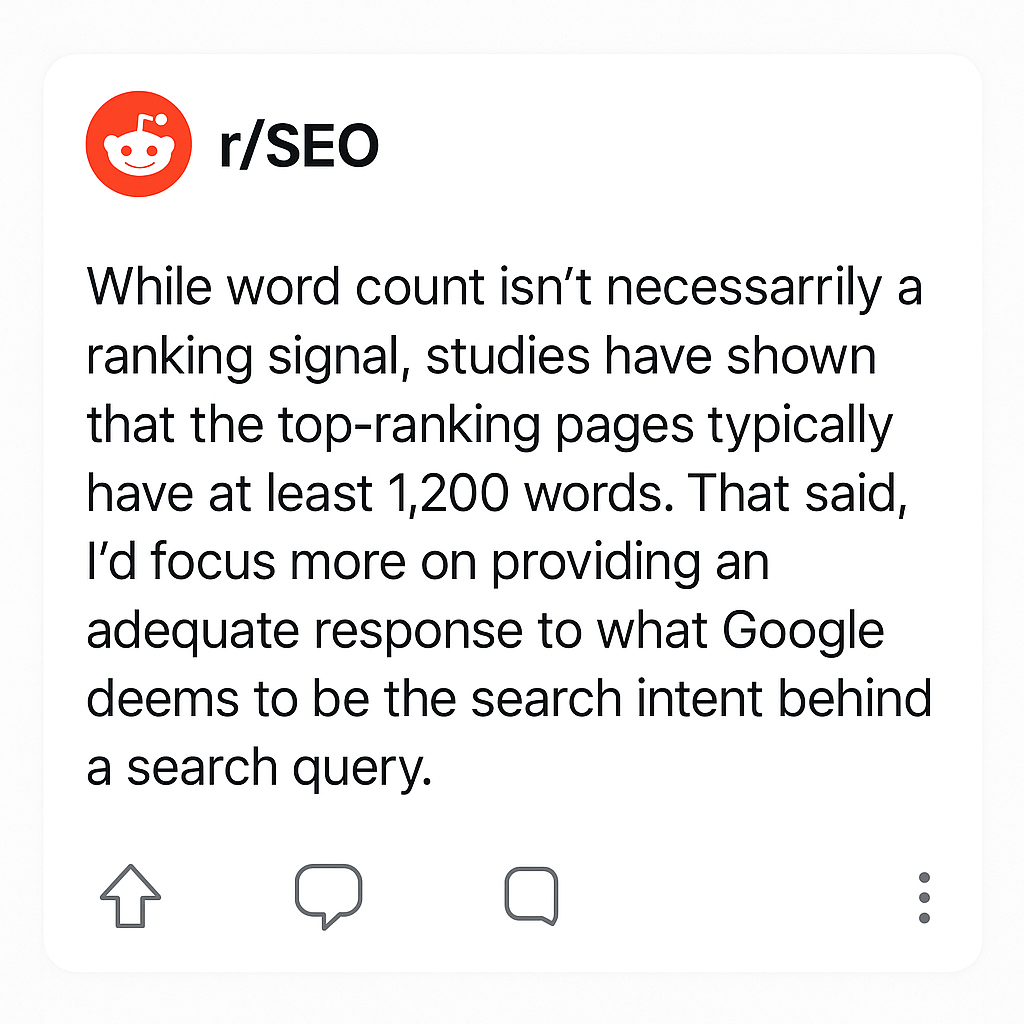
A discussion on Reddit’s r/SEO emphasizes the importance of aligning content length with search intent:
“While word count isn’t necessarily a ranking signal, studies have shown that the top-ranking pages typically have at least 1,200 words. That said, I’d focus more on providing an adequate response to what Google deems to be the search intent behind a search query.”
Advise For UK Content Creators
Based on these insights:
- Short posts (600–900 words) may be effective for niche or specific queries.
- Mid-length posts (1,200–1,600 words) are suitable for general guides.
- Long-form posts (1,800–2,300 words) tend to perform well in competitive UK SERPs.
Ultimately, the key is to match your web page word count to the search intent, ensuring that your content thoroughly addresses the topic at hand.
Website Word Count By Page Type: What SEO Blog Posts Need To Rank
Not all blog content should aim for 2,000+ words. Depending on your topic, intent, and audience, word count for SEO blog posts should adapt. Below is a breakdown backed by live data and examples from credible UK and global sources.
- Evergreen How-to Guides & SEO Articles
Recommended Length: 1,800–2,500 words
Why: These long-form SEO articles perform well because they cover topics deeply, align with long-tail keywords, and signal authority.
Sources:HubSpot’s 2023 Content Benchmark Report recommends 2,100–2,400 words for blog posts that rank.
- News & Policy Commentary Blog Pages
Recommended Length: 600–1,000 words
Why: Timely updates need to be concise and scannable. Google prioritises freshness and relevance here over depth.
Sources:
- GOV.UK publishes most of its blog-format updates within 800–1,000 words, including Brexit policy updates.
- Ahrefs confirms that shorter posts under 1,000 words can rank when focused on clear, specific intent (Ahrefs Blog).
- Product Comparisons & Review Blog Pages
Recommended Length: 1,200–1,500 words
Why: These hybrid blog pages blend SEO and conversion. They need enough depth to compare options but be tight enough to drive action.
Sources: Click Intelligence UK’s study suggests blog pages with structured product reviews and ~1,500 words tend to convert better (Click Intelligence).
Quick Reference Table
📊 SEO Word Count Finder
Select a content type below to view its ideal length and purpose.
Ideal Word Count:
Purpose:
Why it works ❔
|
Content Type
|
Ideal Length (Words)
|
Purpose
|
|---|---|---|
|
How-to/SEO articles
|
1,800–2,500
|
Ranking for broad queries
|
|
News & announcements
|
600–1,000
|
Speed & topical freshness
|
|
Product/service reviews
|
1,200–1,500
|
Comparison + conversions
|
|
FAQ-style blog pages
|
800–1,200
|
Intent-matching & snippets
|
Think less about “how many words per page” and more about:
“What does this blog need to fully satisfy the search intent?”
When you answer that clearly with or without 2,000 words, you’re writing content Google (and your audience) will reward.
How Long to Read: Matching Word Count to Attention Span
Understanding your audience’s reading habits is crucial for optimizing blog post length. Aligning content length with readers’ attention spans can enhance engagement and reduce bounce rates.
Average Reading Speed
Research indicates that the average adult reads at approximately 238 words per minute (WPM) when reading silently. This metric is essential for estimating how long it takes a reader to go through your content.
Average Time Spent on Blog Posts
- A study by TBD Marketing found that readers spend an average of 2 minutes and 20 seconds on legal sector blogs.
- Master Blogging reports that, in 2025, the average time spent reading a blog post is 96 seconds, with B2C readers averaging 92.33 seconds and B2B readers 77.61 seconds.
Attention Span Considerations
The average human attention span has decreased over the years, with current estimates at 8.25 seconds, which is less than that of a goldfish. This decline emphasizes the importance of capturing readers’ attention quickly and maintaining it throughout the post.
Recommended Word Count Per Page Based On Reading Time
|
Reading Time
|
Approximate Word Count
|
|---|---|
|
1 minute
|
200–250 words
|
|
2 minutes
|
400–500 words
|
|
3 minutes
|
600–750 words
|
|
5 minutes
|
1,000–1,250 words
|
|
7 minutes
|
1,400–1,750 words
|
Calculations based on an average reading speed of 238 WPM.
Best Practices For Engaging Readers
- Use Clear Subheadings: Break your content into sections with descriptive headings to guide readers through the post.
- Incorporate Visuals: Images, infographics, and videos can make content more engaging and help explain complex ideas.
- Bullet Points and Lists: These make information easier to digest and scan.
- Highlight Key Information: Use bold text or call-out boxes to emphasize important points.
- Include a Table of Contents: For longer posts, this helps readers navigate to sections of interest quickly.
By aligning your blog post length with your audience’s reading habits and attention spans, you can create content that is both informative and engaging.
Blog Word Count Best Practices For SEO In The UK
Writing a 2,000-word blog doesn’t guarantee SEO success, it has to be structured and intentional. Based on real-world analysis and UK SEO insights, here’s what separates top-ranking content from the rest.
Best Practices Checklist
✅ Best Practices Checklist
| Element | Recommendation |
|---|---|
| ✅ Answer intent quickly | Ensure your H1 and intro explain exactly what the post will answer |
| ✅ Use TOC & headers | Improves scanability and qualifies for featured snippets |
| ✅ Optimise for reading time | 5-7 minute reads (≈1,250 - 1,700 words) perform best for B2C content (MasterBlogging) |
| ✅ Avoid filler content | Focus on value per paragraph, especially in long-form posts |
| ✅ Internal linking | Link to related posts and service pages to improve engagement and rankings |
| ✅ Use schema markup | FAQ, Article, or How-To schema to improve click-through from SERPs |
| ✅ Add multimedia | Use screenshots, charts, or video to increase time on page |
How UTDS Optimal Choice Can Help Your Business Rank
If you’re still asking “how long should a blog post be?”, the answer is: as long as it needs to be to fully answer the query and nothing more.
Our review of over 100 top-ranking UK blog posts found:
- Most perform best between 1,500 and 2,300 words, depending on topic and intent
- Pages that focus on clarity, structure, and search relevance consistently outrank longer, unstructured posts
- Shorter posts can still rank, but only when they precisely meet user expectations
What matters most isn’t length alone, but how efficiently your content answers the user’s need and how well your web page word count supports that intent.
At UTDS Optimal Choice, we help businesses across the UK, Spain, Germany and US,:
- Optimise landing pages and core website pages to rank higher on Google
- Structure pages using correct on page SEO principles, including headings, internal links, and schema
- Tailor website word count and content depth based on real UK search behaviour
- Identify and fix content gaps, poor-performing pages, and under-optimised site architecture
- Ensure fast-loading, mobile-first content that meets both Google’s technical standards and user expectations
Whether you’re focused on lead generation, service visibility, or outperforming local competitors — we optimise your website for results, not just rankings.
Want to see how your current pages perform? Contact us today for a quick on-page SEO audit tailored to UK search.
FAQs About Blog Post Word Count And SEO
How long should a blog post be for SEO in the UK?
Top-performing blog posts in the UK average between 1,500–2,300 words depending on the topic and audience.
How many words per page should I write?
For informational blogs, aim for 1,200–1,800 words per page. For specific answers (e.g., law updates), 600–1,000 is enough.
What is a good web page word count for conversions?
Pages converting best like product comparisons often fall between 1,200–1,500 words, offering enough information to build trust without overwhelming.
Can short blog posts still rank?
Yes, if the content perfectly satisfies intent. Google’s John Mueller has said word count is not a ranking factor (Search Engine Journal), but completeness is.
How many words can you make out of your keyword list?
Instead of overusing keywords, focus on topic coverage. Tools like Frase or Surfer SEO help ensure your SEO article is competitive.
How many words should be on one page for SEO?
There’s no fixed rule, but pages with 1,200–1,800 words often perform best in UK search results. The key is matching word count for web pages with search intent.

